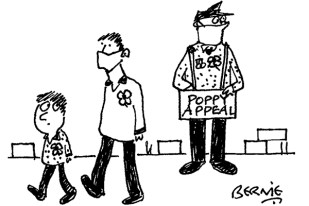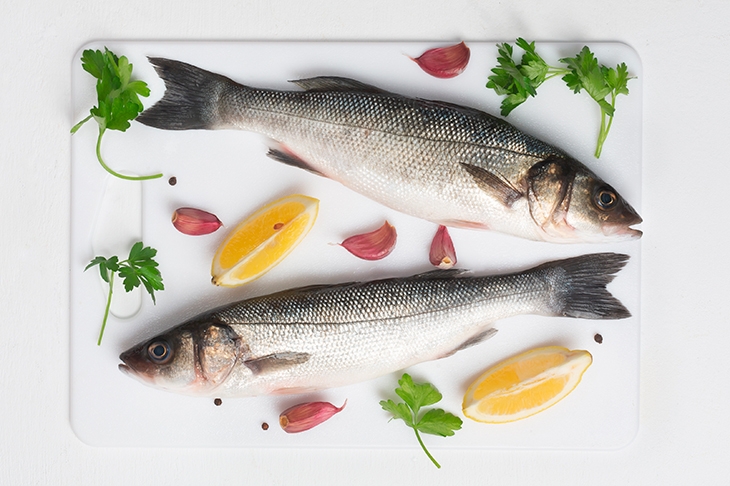It’s a good day to stab something and tear out its heart. Elaine Lorys is the only female master fishmonger in Britain. She stands in an apron in the Stevenson fish shop in Newlyn amid the brightness of the autumn sun and signage offering mussels, oysters and clams; bass, bream and red mullet; crab and scallops; fish cakes and fish pies. Much of the fish is caught by Stevenson boats and landed at Newlyn, and is available for delivery across the UK during lockdown. The harbour is across the road, looking fine and functional, apart from the mossy medieval pier that the Mayflower may have sailed from: a local tale says the ship stopped here for water on its journey from Plymouth to Cape Cod. If a pier could look bewildered by reality, this one would. I know how it feels.

Lorys provides gutting lessons for the curious, but she is an oil painting, too. A photograph of her portrait ‘Fishsale’ — by Simon Davis, belonging to the Royal Society of Portrait Painters and exhibited at Girton College, Cambridge — is on the wall of the fish shop. She looks lovely and serious under Davis’s paintbrush and a little wistful. Artists have come to Newlyn since the 19th century to paint the fish. The best Newlyn School paintings are in the Penlee House Gallery and Museum in Penzance, but that is closed now. Today Lorys does not look particularly wistful; but the bass do.
Bass is a glorious, fat, silver fish, ‘an athletic, predatory fish’, according to the Cornwall Good Seafood Guide: a king’s fish. Bass are apparently quite clever for fish, but it did these fish intellectuals no good. I want to eat fish now because I keep chickens named for my sisters as pets in a ridiculous Bauhaus-style chicken run in the garden, and I feel tender towards animals because of what we have done to them; or at least I want them to have a good life before I digest them. Wild fish have good lives. Lorys lays the bass on its side and indicates ‘a little hole (that’s where it poos)… you cut from in there straight up to the gill’. She slits it from hole
to head. It opens easily and she tears out the guts with her hand. They make a red and yellow smear on the board. Then I do it: I rip and tear. You have to hold the fish steady. She says I do it perfectly, but I have been thinking about politics — British and international — for three days. Restaurants are closing and some may never reopen. The world feels both insane and narrowing. I can win a knife fight with a fish.
We go into the back of the shop where a man called Will is filleting Dover and lemon sole. Lorys shows me how to descale the bass. She has a scaler — a brutal, undulating thing — but she says you can use the blunt side of a knife instead. She scrubs the scales off under the tap. They fall into the sink like small grey jewels. I could cut the fins off with scissors before I cook it, she says, but I don’t want to. They are beautiful.
She scrubs the scales off under the tap. They fall into the sink like small grey jewels
I go home, wash the bass and score them diagonally. I cut myself on the fins and I am glad. I want food I can touch; food that could potentially harm me; food that is real. I put them on wet samphire and smear them in butter, lemon, pepper and salt and bake them in foil on the bottom shelf of the Aga for half an hour. They come out with dulled eyes and their flesh falls off their bones, bright white and pliant. They taste wondrous, and I am soothed.
W. Stevenson & Sons, The Strand, 76A Strand, Newlyn, Penzance TR18 5HA, tel: 01736 330713. www.newlynfreshfish.co.uk







Comments